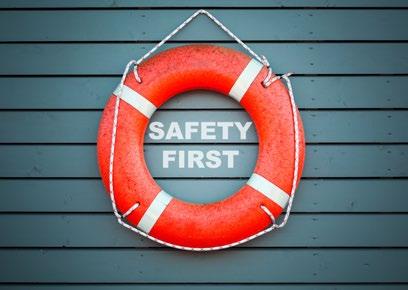
5 minute read
Safety First
from Wavelength #72
SAFETY FIRST! Safety Bulletin
Message from the DPA
Advertisement
Dear seafarers,
This is my first message to you under my new job title although it seems to me nothing has really changed in my feelings of commitment and responsibility towards you and our organization’s Safety Culture. What is very different, though, at the time I am writing this message to you are the difficulties we are all facing during this strange COVID-19 era. In my opinion, the most unusual and serious side effect caused by this unprecedented crisis for the shipping industry has been the fact that so many seafarers onboard vessels worldwide have completed their tour of duty, but have not been able to return home. As travel restrictions hit global economies, trade has continued thanks mostly to 1.2 million seafarers on board ships across the world. This commitment to keeping supplies of food, fuel, goods and vital medical supplies has enabled nations to focus on how to overcome the COVID-19 pandemic. Conversely, these same nations could not allow crews to safely rotate on and off ships and return home to their countries. Since the beginning of the crisis, the well-being and safety of our seafarers has been our number one priority. At first, the fact that seafarers could not travel in order to avoid contamination seemed the safer option for them. This collage of photos from our fleet vessels shows exactly that! However, as time passed what worried me the most were the adverse effects on the seafarers’ mental health that could result in a reduced ability to safely perform their duties due to increasing fatigue. Soon, that became a common realization. After 2 months of worldwide lockdown, the UN Secretary General was urged by global industrial and shipping leaders to persuade the 193 member states to act urgently so as to avoid a “humanitarian crisis” involving over 200,000 seafarers working on vessels across the globe who were unable to be relieved.
Finally, the time came for governments to gradually open their borders (and their hearts), to the world’s seafarers. More than 80% of global trade by volume is moved by maritime transport. As such, keeping the global economy alive depends on the seafarers who operate the world’s merchant fleet. For this reason, people ashore should not neglect to recognize the sacrifice made by seafarers for them. Hopefully, by the time this new issue of Wavelength reaches our vessels, this disruption of our normality will be well on the way to becoming just a memory of an unpleasant situation never to return. Personally, I wish to thank you for your patience, courage and strength during these trying times, and for continuing to prove that seafaring is a superhero ability!
I wish you calm seas and safe voyages!
Elli Moretti
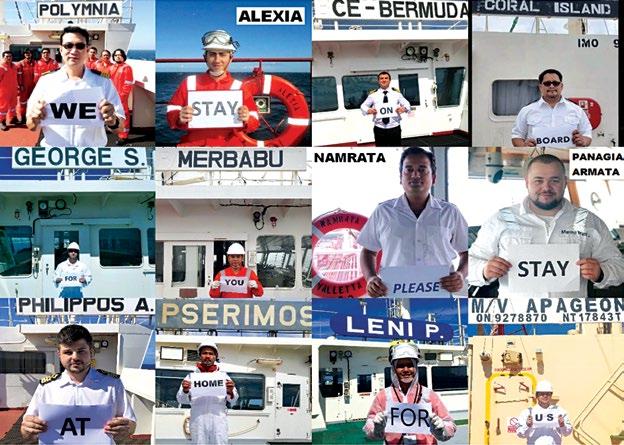
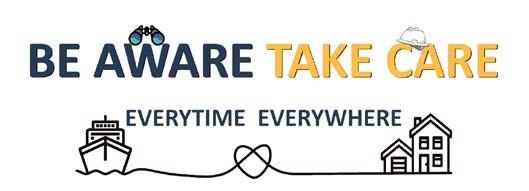
• In this industry, we spend time away from home, which puts strain on ourselves and our families. • Building strong supportive networks helps us and our families manage when we are away and when we may need support and assistance to help us deal with difficulties. • Accepting support from those who care about you, and will listen to you, strengthens your ability to get through life’s challenges
Goal Zero tips on How to Deal with a Crisis
Dealing with a Crisis • Be prepared and accept that all of us will experience crises or difficult circumstances of varying degrees throughout our lives. • You can’t change the crises, but you can have an influence on how you react to them and the choices you make. • Recognising your own reactions and asking for support from others will help you make better choices and safer decisions. When we are making decisions, we react using the two thought processes seen below:
Using each other’s knowledge, skills and support will help you to make safe choices and get you through the crisis. We all go through crises in our lives and they can feel overwhelming. We may not have a choice with regard to the crisis we face but we do have a choice as to how we react and the choices we make. It is important to recognize that we need to be aware of how we react and how we can draw on the support of others to make good and safe choices.
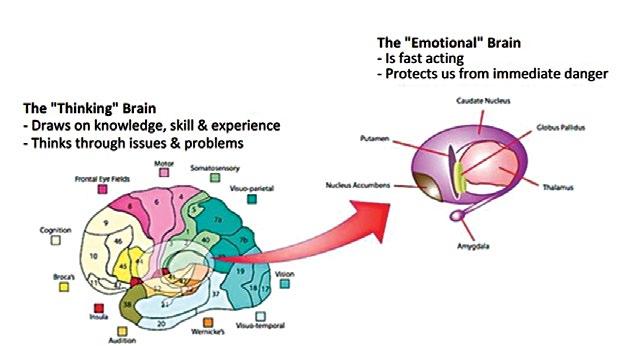
In times of crisis, our emotional brain is the first to act: sensing danger, causing our heart rate to increase and release hormones to prepare our muscles and get us ready to run away or to fight. In some circumstances, this can be very helpful (e.g. a fire on board), but it can also block the thinking brain from working efficiently and getting perspective on the situation. It is important for us to recognize how our body makes us feel at these times and how it can affect our thinking. • When a crisis occurs and we have to endure difficult circumstances, we can feel overwhelmed. Everyone feels this way; it is a normal reaction. • We have to draw on experience, knowledge and support from others; we learn and grow through this. • We cannot choose the crisis we experience, but we can choose how we react to it and the choices we make. HOW THE 3 STATEMENTS ABOVE ARE LINKED TO SAFETY: Going through a crisis can feel overwhelming and this can have a negative effect on board. During times of crisis, critical decisions and choices often need to be made; we have a choice as to how we react. • Maintaining a hopeful outlook improves your quality of life. • Maintaining a hopeful outlook is something that you can control by yourself with some practice. HOW THE 2 STATEMENTS ABOVE ARE LINKED TO SAFETY: When we encounter difficult situations, having a positive outlook helps us to look for the best solution and can protect us, our team and our vessel from damage. Maintaining a positive attitude is about looking for solutions from different angles instead of focusing on the things that don’t go well. During a crisis, you have a choice: ✖ You can see a problem as impossible to solve and get stuck in feelings and thoughts about negative consequences. ✔ Break the problem down, see the opportunities it presents and start working to improve the situation. Through crises we learn and grow -“In the worst of times we can find our best selves”.
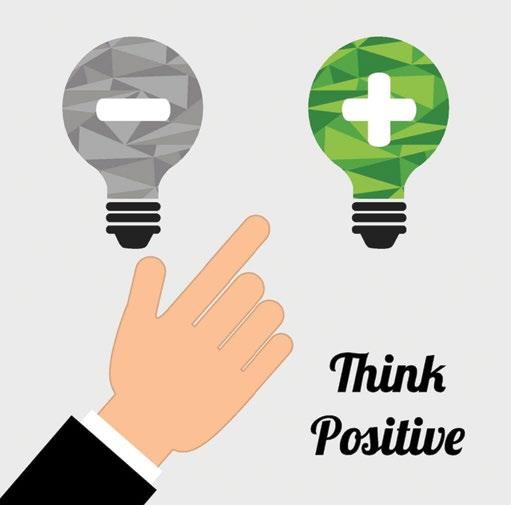
As humans, we tend to make negative assumptions. However, things may not be as bad as they look.




